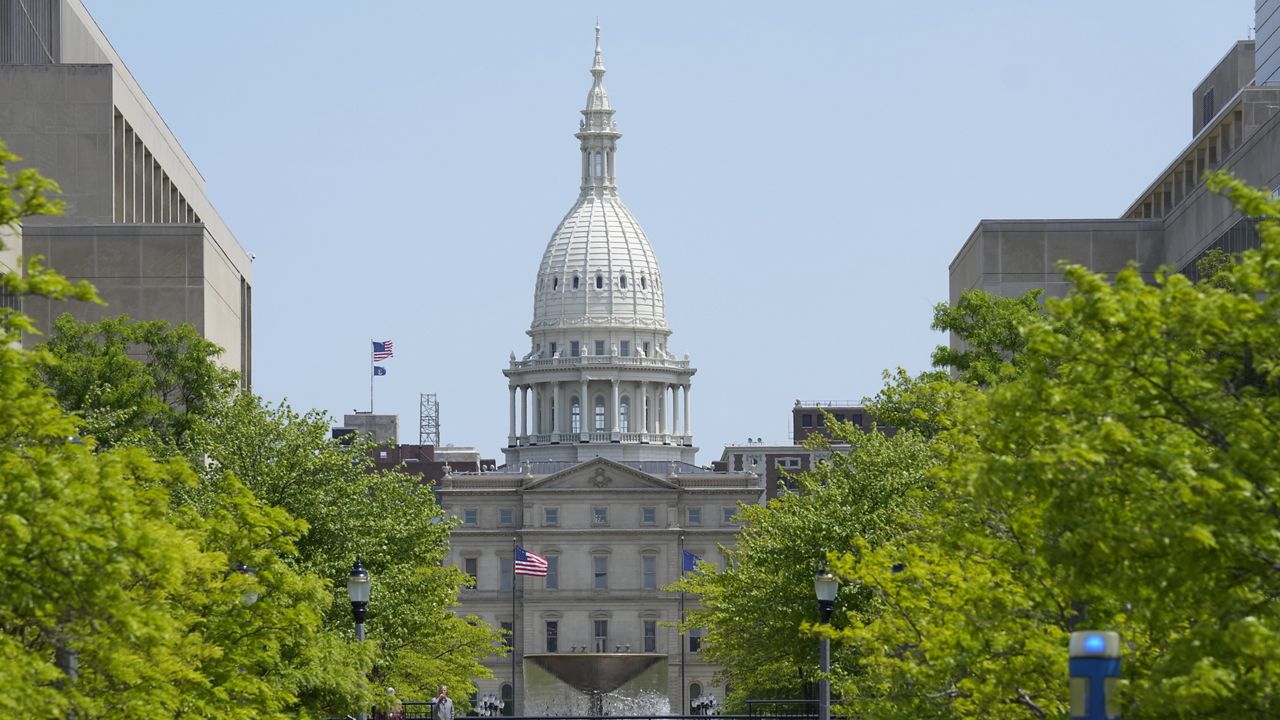Michigan's Supreme Court on Wednesday rejected an effort to remove former President Donald Trump from the state's 2024 ballot based on the 14th Amendment's insurrection clause.
The ruling in a key battleground state contrasts with Colorado's recent decision to remove the former president from the ballot, setting up a likely showdown before the U.S. Supreme Court, which has never ruled on the insurrection clause.
A lower court in November ruled that state election officials do not have the authority to remove a candidate from a primary ballot, and said that the case raised a "political" question which should not be up to the courts to decide. An appeals court upheld that decision. Free Speech For the People, a liberal-leaning advocacy group that brought the case, appealed the decision to the high court, but the justices wrote in the order that they "are not persuaded that the questions presented should be reviewed by this Court."
The group brought the case did so on behalf of Michigan voters who wanted to have Trump removed from the ballot based on his efforts to overturn the results of the 2020 election and his actions related to the Jan. 6, 2021, riot at the U.S. Capitol. Similar challenges have been filed in numerous states across the country, though many have already been dismissed.
Section 3 of the 14th Amendment disqualifies anyone who previously took an oath to uphold the U.S. Constitution that "engaged in insurrection or rebellion" against it from holding federal office, though that can be removed by a two-thirds vote in the House and Senate.
The courts in Michigan did not engage in the question of whether or not Trump engaged in an insurrection, nor whether Jan. 6 qualifies as one.
In the sole dissent, Justice Elizabeth Welch, who was nominated by Democrats and has served on the bench since 2021, argued that the court should have taken up the question of whether Trump is eligible to appear on the state's ballot.
"Considering the importance of the legal questions at issue and the speed with which the appellants and the judiciary have moved, I believe it is important for this Court to issue a decision on the merits," Welch wrote.
But, she acknowledged, "while there may be some merit to the argument that political parties are limited purpose state actors who must comply with the United States Constitution when submitting candidate names as part of the presidential primary process, no political party is a party to this litigation."
Welch also noted that Colorado's election laws differ from Michigan's, which is "directly relevant to why the appellants in this case are not entitled to the relief they seek."
"The appellants have identified no analogous provision in the Michigan Election Law that requires someone seeking the office of President of the United States to attest to their legal qualification to hold the office," she wrote.
The Michigan presidential primary is set to take place on Feb. 27.



